36 min. to read.
Note: This is the text of my Pentecost sermon from 5/31/2020. In this particular moment in American history, it seems essential for white Christians to speak up, if only because our silence has spoken for us for too long. I am not an expert in this topic, but I am listening and learning, and have been convicted that white Christians are responsible for addressing white Christians on this subject.
This is a long post, but it’s shorter than centuries of racial oppression, so I think you can handle it. Here we go!
If you would prefer to listen to this presentation or to watch it on video, you can do that here:
There’s this worship song we used to sing a lot. It’s simple. It had pretty harmonies. Do you remember this one?
“This is the air I breathe / This is the air I breathe / Your Holy presence living in me.”
It’s a great song and a great metaphor about longing for God. God is like air. We need air to live. When we don’t have air, we go into crisis pretty quickly. Our connection to God is essential. Not a luxury. It’s something we need in order to live.
Like Air.
The Spirit & The Breath
Today is Pentecost Sunday. A day we remember the launching of the Christian church through the anointing of the Holy Spirit. The story we usually remember is found in Acts 2, and goes like this:
The disciples were all gathered together in one place. It was weeks after the resurrection, and Jesus’ final appearances. They were afraid, isolated, unsure of what to do next. Then suddenly, they hear a rushing wind. Tongues of fire appear in the air above their heads, and they can speak different languages.
Peter goes outside, and there’s a crowd because Jerusalem is filled with pilgrims for the Jewish feast of Pentecost. Peter preaches the first Christian evangelistic sermon. The Holy Spirit moves, empowering the disciples to reach across the boundaries of nation, tribe, and ethnicity. Three thousand people become followers of Jesus, launching a new kind of community.
That’s the story that comes up for most Christians when we think of Pentecost. In that story, the Spirit showed up in a rushing wind. The Greek word translated “wind” could also be accurately translated “breath.” The Spirit showed up as breath.
“This is the air I breathe. Your Holy presence living in me.”
There is another moment where Jesus gives the disciples the Spirit. It’s quieter, more intimate. There’s no crowd. You’ll find this episode in John’s Gospel (20:19-22), and it takes place in the evening, on the very same day that Mary and the other women found the empty tomb.
The disciples—except for Thomas—were all gathered in the upper room. They were afraid, isolated, and unsure of what to do next. The door was locked. But then Jesus appeared, standing among them. He says, “Peace be with you.” He shows them his wounds. They speak, and then before he left, this happened.
Verse 21-22. “Again Jesus said, “Peace be with you! As the Father has sent me, I am sending you.” 22 And with that, he breathed on them and said, “Receive the Holy Spirit.” Again, the Spirit comes through the breath.
“This is the air I breathe. Your Holy presence, living in me.”
In the Jewish Bible, what we Christians often call the Old Testament, the word in Hebrew for God’s Spirit is ruach, which is often translated “Spirit,” but can also be translated, “breath.” In the New Testament, the Greek word used for God’s Spirit is pneuma, which can be also be translated as “Spirit” or “breath.” In Genesis 1, it is God’s breath that gives us life. The ruach. On the cross, when Jesus died, his final words were, “Into Thy hands, I commend my spirit.” My pneuma. I release my spirit. I release my breath back to God.
See, in scripture, one of the primary metaphors for our life is breath. When we can’t breathe, we can’t live. So interestingly, this is also the primary description of God’s immanent presence with us. Ruach. Pneuma. Spirit. Breath. The words are the same.
“This is the air I breathe. Your Holy Presence, living in me.”
“I can’t breathe!”
And so, this week, as I was studying these scriptures, I was thinking about Pentecost and the disciples being sent to all nations, and the Holy Spirit, and the breath. That’s when I saw the video of George Floyd.
Another black man pressed to the pavement. This time, with a police officer’s knee crushing his neck, and three other police officers standing at arm’s length, watching. There was a large enough crowd that this event was filmed on multiple people’s cellphone cameras, from different angles. This wasn’t happening in the heat of the moment, where it could be justified by fear or accident. The officer put his body weight onto George’s neck for almost nine minutes. For seven of those minutes, George begged over and over.
“Please. Your knee off my neck. I can’t breathe,” until he finally fell unconscious. The officer didn’t move his knee for another two and a half minutes. George Floyd never woke again.
This? This is the air I breathe? Your Holy Presence living in me?
Immediately, my social media was filled with people—all white people—saying, “Don’t jump to conclusions. We need more context. We need to wait for the truth to come out.” Listen! Even if Floyd was a violent criminal, justice doesn’t look like death on the pavement under a cop’s knee.
And then, no arrests were made for four days. That led to protests. And people—mostly white—began saying, “This isn’t the way to get justice.”
As often happens with grief and anger and trauma, protests became shouts of rage and shouts of rage became riots.
Then, it was mostly white people saying, “Two wrongs don’t make a right. Violent protests don’t solve anything. Only Peaceful protest makes a difference.”
Do they? Didn’t we (mostly white people) reject Colin Kaepernick’s peaceful protest against police brutality? We said he was unAmerican. Ungrateful. An entitled athlete. The Vice President of our country walked out of a football game as a statement. The NFL ran him out of his vocation. When we rejected Kaepernick’s peaceful protest, we made it clear to people of color in our country that it was going to take something a lot more severe to get us to listen.
Are we listening now, or are we just getting defensive?
There’s going to be a lot of blame thrown in the coming days; there already is. Anger is messy. Anger and trauma and crowds mixed together? That brings out the worst in us. We’ve already seen property destruction and more violence against humans. We’re going to hear conflicting narratives, and it will be hard to know what’s really going on. But you can be assured that the bottom line is this.
If the police had arrested George without violence, there would have been no riots. Alternatively, if the officer who killed George Floyd had been arrested that very day, there would likely have been been no riots. Or, if we had listened to Colin Kaepernick and so many others who have spoken up these past few years, and dealt with the problem of police accountability, there would very likely have been no riots.
This crisis began with George Floyd’s death, but we know how trauma works. An unresolved trauma colors everything you experience. When an event triggers that old memory of powerlessness, all the same anger, and fear from the last time floods back in. There have been a lot of “last times.” The layers of traumatic pain and anger are deep.
George cried, “I can’t breathe.” Does that sound familiar? Eric Garner cried out, “I can’t breathe,” as he was choked to death by New York police officers for selling cigarettes. And before that? Rodney King and Abner Louima. Amadou Diallo, and Sean Bell, and Oscar Grant. Michael Brown and Freddy Gray. Philando Castile and Trayvon Martin. Ahmaud Arbery, and Breonna Taylor. And those? Those are just a few of the people we know about because the right person was there at the right time with a camera.
Before them, there were countless others, all the way back to the thousands of African Americans lynched during Jim Crow, and the thousands upon thousands before that who were brutalized and killed during the Transatlantic slave trade that made this country prosperous.
This is the air I breathe!?
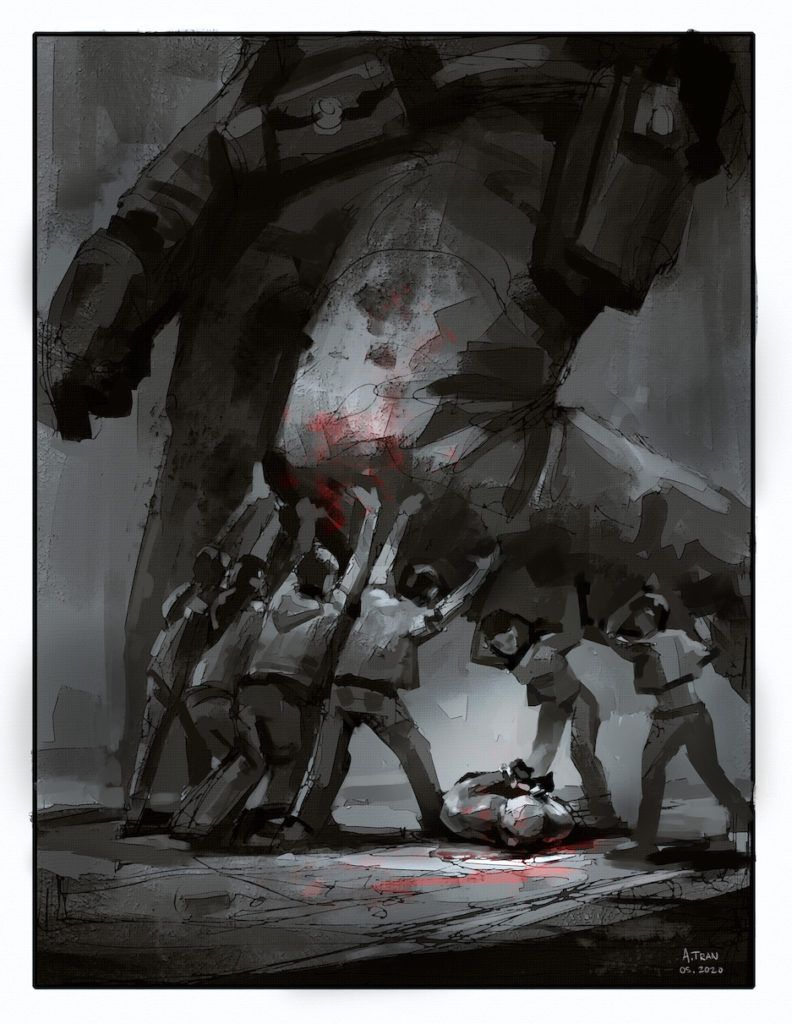
It’s OUR problem.
Friends, we have a problem. It’s not just a police officer abusing their power, one bad apple with a gun. It’s also not the rise of violent white supremacists. It’s not identity politics, even though you might have been told that’s the problem. The problem is that we live in a country saturated with systemic racism. It is so deeply a part of the air we breathe, many of us—mostly white people—don’t even notice the stench.
Oregon—our beautiful state—was founded just two years before the Civil War, as a Whites Only state. Did you know that? Our state constitution forbade black people from living here. That clause was only removed from the constitution in 1926. Not even a hundred years ago!
The systemic racism is in our housing system, our HOAs, and our mortgage lending institutions. It’s in our health care system, where outcomes are consistently worse for people of color than for white people. It’s in our justice system, starting as early as the placement of police in inner-city elementary schools.
Right now, if you’re uncomfortable because I’ve spent nearly twelve minutes of a sermon talking about this, then you are experiencing the real problem. I’m not saying you are the problem; I’m saying that you are experiencing it.
See, I know with profound certainty from my own emotional recovery process that we will do nearly anything to avoid emotional discomfort. Our go-to reaction will always be to deny, to explain away, or to blame. If that’s where your mind is going now, as you think about George Floyd, or the protests, or the riots, step back and ask yourself why.
If the thoughts coming into your mind are “not all white people…” or “I’m not a part of any of that…” or “They should have done what the officers told them…,” then you are experiencing your brain’s natural tendency to avoid discomfort by denying, justifying, or blaming. And here’s the big problem: When we avoid the discomfort, we have no stake in solving the problem.
George Floyd cried out, “I can’t breathe.” Eric Garner cried out, “I can’t breathe.” Black and Indigenous People of Color in our country have been telling us, “We can’t breathe” for years. Generations! Why can’t we listen to their cries? Why don’t we trust them to tell us their own experience truthfully?
I know it’s uncomfortable. I know it raises big questions that seem outside our individual capacity to solve. I don’t like the feeling either. But friends, we cannot avoid looking at this problem in the face.
It’s not about us being nice.
See, I used to think it was sufficient for me to not be racist. I could be nice to people. I could avoid racist language. I could choose not to discriminate in my actions — and that was me, Not Being Racist. I thought that if enough people could be like me, racism would just go away. (One of my persistent character flaws, I’m learning.)
I used to think it was sufficient for me as a Christian and a pastor to know that the Gospel means all humans are equal before God. I used to say things like “It’s a sin issue, not a skin issue,” and “Racism is a matter of the heart.” I used to think that if people would just let God change their hearts, racism would just go away.
So when people of color brought this stuff up, I either felt like it didn’t apply to me, or I felt like they were calling me a racist! That felt like they were calling me a bad person. I don’t like that. I like to think I’m a good person. I don’t like being accused of things I didn’t do. So I would get defensive, and I would stop listening. Sometimes I still do.
But about three or four years back, I had a startling realization. I think it was God helping grow me up. I realized that my experience of the world is not canonical, that my view of how life works might not be universal. This meant if I was going to love other people well–which I believe is my calling as a Christian–I had to listen to them. And so I started listening. What I learned about the experience of people of color in our country completely disrupted my entire view of how life works. I found out that many of my assumptions were wrong.
I’m going to share one thing I learned that stunned me. I learned that people of color generally don’t care all that much about one individual racist person. If a person is rude, and uses racist language, and discriminates in their daily behavior, that person is a jerk. In many cases (so long as that person isn’t their supervisor, the principal, or a police officer), the person of color can just avoid the jerk. They can just go about their lives in the same way that I can ignore someone who doesn’t like me for whatever reason.
But what people of color cannot avoid is when discrimination is translated into systems of power that deny them opportunity, justice, and even their lives. And those systems? They are created and sustained and justified by people like me–people who trust those systems, who are good rule followers, and who benefit from those systems. People like me.
A problem bigger than individuals.
See, the real issue isn’t that there are racists. There will always be racists. The problem is that we are propping up a system of racial injustice.
Here’s a sketch of what I mean.
I didn’t redline people of color out of good neighborhoods, but people like me in hundreds of HOAs and lending institutions and insurance companies and neighborhood watch groups did that together over many years, in tiny steps that made it look like no one was really doing anything wrong, and people were mostly concerned about property values and safety. But the net result is that it’s objectively harder for black families to get a good mortgage, and to use that mortgage to buy a house in a good neighborhood. Are their racist people in the housing industry? Sure. But the bigger problem is that the industry itself has been shaped over time to automatically discriminate based on race.
I didn’t shoot Philando Castile or Breonna Taylor, but people like me in communities across the country, just sighed when they heard the news and said, “That’s terrible. They should have complied.” Or we talked about how “one bad cop” is the problem. With our denial, justification, and blaming, we made it look like we’re happy with how Policing works today, and that left very little pressure on mayors and prosecutors and police chiefs to do anything differently.
This is the air I breathe? This is called systemic racism, and it’s how racial injustice happens. We can be nice people who would never utter the N-word and try hard not to discriminate in our personal choices, and at the same time, we can benefit from and support systems that oppress. And all while being certain we’re not racist!
Consciously, or unconsciously, we outsource the racism to nameless, faceless institutions, and that allows us the benefits of our privilege without the cost of feeling like we’re hurting other people.
There… I used that difficult word. Privilege. I know it’s a trigger word. I know. It makes us (and by us I do mean white people) feel like we’re being accused of something we have no control over. It’s almost like we’re being judged for the bad behavior of people we don’t even know, people for whom our only connection is the… color of our skin….
Do you get it?
I have white privilege. I do. Here’s some of what I mean.
I’ve never feared police brutality. On multiple occasions, I have called the police to where I was, and it never crossed my mind that they wouldn’t be helpful.
I’ve always believed that if I was unjustly accused, the legal system could be trusted to look at the evidence and exonerate me.
I walk through a world where people see me as an individual; they don’t usually hold me accountable for the bad behavior of other white people.
Now, I don’t like the idea of White Privilege. I’ve worked hard in my life to get where I am. My life doesn’t feel like a life of advantage. And a lot of people like me feel the same way. So when we hear this phrase, we react in discomfort and defensiveness. This reaction enables us to avoid looking at how our skin color is not an obstacle or impediment or threat in nearly every part of our lives.
I have never felt like society as a whole made it impossible for me to breathe.
On the other hand, I have felt indignant at people of color who used drugs, and cluttered up our healthcare system and take advantage of welfare. I felt that way, even when the data does not support this view. I’m so ashamed.
I have felt superior because I’m good at English, and I know how to use proper grammar. For a long time, I thought that the way African American people speak was a sign of ignorance. I’m embarrassed even to admit this. I wasn’t aware (or really, willing) to learn that African-American Vernacular English is a full-fledged dialect, with its own clear grammar rules, and a linguistic culture that’s been developing for over three hundred years.
I have felt uncomfortable around big black men. Not men who were threatened me. I had no conscious reason to feel threatened—other than a lifetime of television and movies that told me big black men are dangerous.
But I was nice! I didn’t use racial slurs! I tried hard in my daily life not to discriminate. As a pastor, I told people that the Gospel changes hearts, which should be enough to deal with racism. But friends, I was wrong. That is not enough.
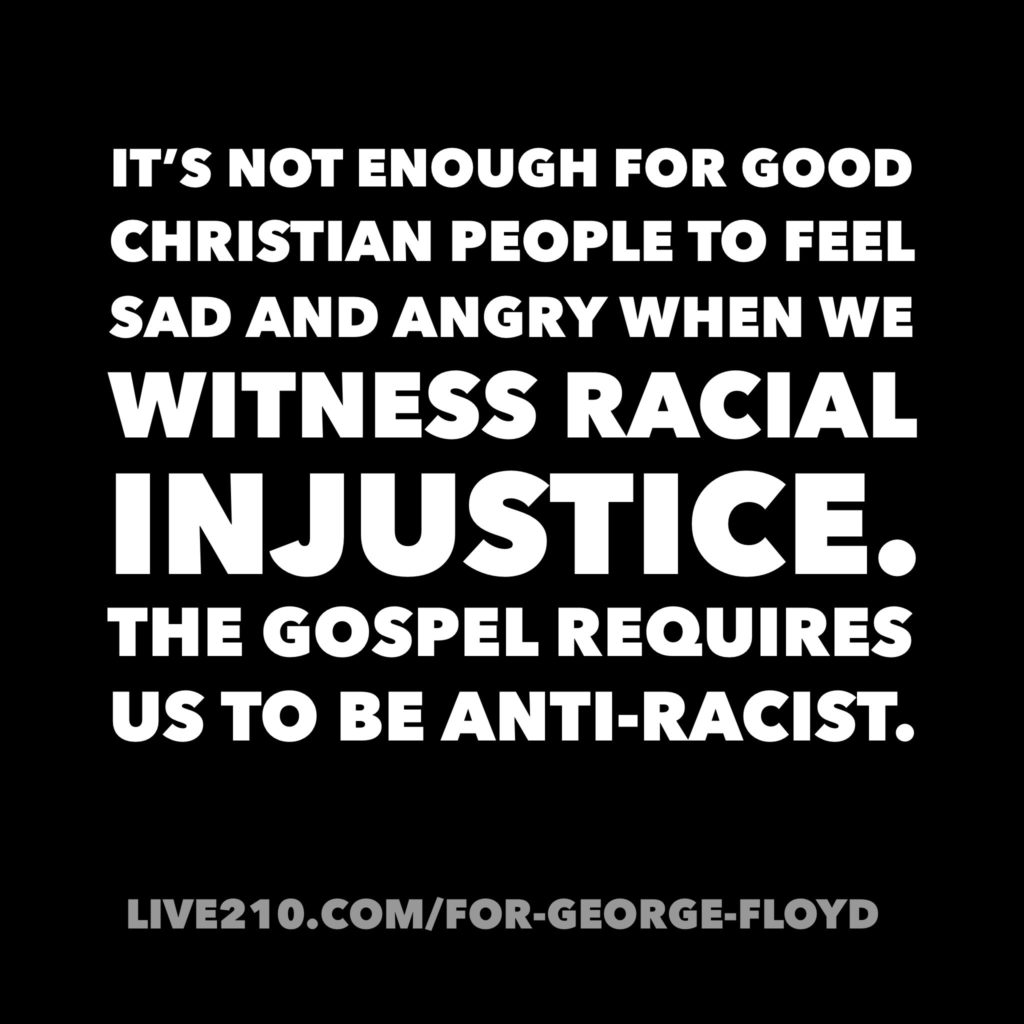
Will we hear the cry?
When I heard George Floyd cry, “I can’t breathe,” I heard a call for help. Breath is our universal need. We can’t live without it. That’s why scripture has tied breath so closely with the experience of God’s presence.
“You are the air I breathe. You are the air I breathe. Your holy presence, living in me.”
When we deny someone their breath, we deny them what God alone has given them. When we allow or support systems that make it hard for people to breathe, we deny those people the full experience of the life God has given them. This is why conversations of Racial Injustice belong here in church, even though they make us uncomfortable. This isn’t just a social justice conversation. This is a gospel conversation!
When Jesus appeared in the Upper Room, and breathed the Spirit on the disciples (In John 20), he said, “As the Father has sent me, so I send you.” How did Jesus describe his mission?
“The Spirit of the Lord is on Me because He has anointed Me to preach good news to the poor. He has sent Me to proclaim freedom to the captives and recovery of sight to the blind, to set free the oppressed.” (Luke 4:18.)
Look, there’s just no responsible way to read that scripture and think that all Jesus cared about was telling people to pray a prayer so that they could go to heaven when they die! Jesus was establishing a new way of living, a new humanity, a new Kingdom where Heaven comes to earth—and he invited his disciples into that same mission.
At Pentecost, the manifestation of the Holy Spirit’s presence was that the disciples spoke in different languages. That allowed the pilgrims in Jerusalem to hear about Jesus in their own tongue. The result was the formation of a single new community drawn from every tribe, united around Jesus. The Spirit transcended ethnic and racial lines. The community formed that day was a new kind of humanity. But be clear! Those 3000 people did not all become one race, with one language and one culture. They became one diverse people united by the breath of God, the Holy Spirit. Our work as followers of Jesus is to live Jesus’ commission and be a part of that uniting, healing community.
When some of our human brothers and sisters tell us that they can’t breathe, we must listen. We must attend to the crisis. We must do what we can to bring good news and healing, to proclaim freedom, and to set free the oppressed. We must lift the knee from the neck!
It’s not enough for good Christian people to feel sad and angry when we witness race-based injustice. The Gospel requires us to oppose injustice.
It’s not enough for us to just be not racist individuals. The Gospel requires us to be anti-racist.
Jose Humphreys, a pastor in Harlem, New York, tweeted this week: “As a Christian, you cannot believe in “the Spirit being poured out on all flesh” and harbor anti-blackness in your heart.” Amen.
What can we do?
Now, if I’ve done my job today, even if you don’t agree with everything I’ve said, then you must be wondering, “OK? So What can I even do? I can’t topple institutions! I’m just one person. How can I make a difference in systemic racial injustice?” That’s a fair question. But please don’t let the enormity of the question cause you to leave the conversation.
Institutions were built over time by a lot of people taking small steps in a direction. If you believe the Spirit of God is inviting you to protect the breath and the lives of your black and brown human siblings, you can take steps.
First, Listen and Learn.
Everything starts here. If you grew up white in America, the truth is that almost everything you were taught about race is wrong. Many of the assumptions about race and injustice held by Middle-Class American Christianity are not based on facts or even good readings of scripture. If we care, if we believe God is calling us to be our “brother’s keeper,” we have to listen and learn.
Read books by Black and Indigenous People of Color about their experience. Go to events where they speak. If you’re on social media, get out of your silo and follow them, and listen to what they have to say. Pay particular attention to the hate and vitriol they receive for saying even non-controversial things. Listening and learning will help correct your assumptions, engage your compassion, and move you to act.
Second, Interrogate Your Feelings.
When you start listening, I promise you’re going to get uncomfortable. You’re going to hear things that challenge you. You’re going to hear words that sound like accusations. You are going to hear people talk in tones and with language you might not approve of. You will feel uncomfortable! But be very clear about this: Your discomfort is not the problem of people of color. The struggle against racial oppression is not about your feelings. You don’t need to see the manager!
When you feel that discomfort, sit with it. When the voice in your head screams, “But I’m not racist! I wasn’t even alive during slavery. My family was poor too! I’ve worked hard for everything I have,” when that voice is shouting in your brain, stop. Remember. Your brain’s primary tools for avoiding emotional discomfort are to deny, explain away, and blame. But all learning and growth are found on the other side of that discomfort.
Interrogate your feelings. You’ve got something to learn. Don’t make your discomfort the problem.
Third, use your privilege to support and protect people of color.
This third step is broad. How each of us embodies it will look different, based on our different types and levels of privilege.
Some of us have the privilege of financial margin. We have extra. If that’s you, then use some of your dollars to support people of color in whatever way makes sense to you. Frequent businesses owned by people of color. (It’s a great way to get to know them.) Go to their restaurants. Hire them as contractors. Buy their books and their art. Donate to scholarship funds that specifically serve black and indigenous people of color. Donate to bail funds so that people who get arrested protesting can get out of jail.
Some of us have the privilege of influence. We’re leaders. We’re on boards and committees. Maybe we have a social media following. If that’s you, use your influence to lift up and serve people of color. Amplify their words on social media. That means retweet them and share their Facebook post–with credit. The people who follow you probably follow them, so you can help them reach more people. Share their books with your friends. Listen to and share their viewpoint in political discussions. When you’re the event planner responsible for finding experts and speakers, invite Black and Indigenous People of Color.
For all of us, the most important influence we have is our influence on our friends and family. Take the courageous stand that in your circle, you will not let racist language or actions stand without comment. Be loving. Be honest about your own struggle. But be clear. Racist behavior is always fostered in a social culture, and we can shift the culture in our own circles.
If you’re white, you generally have the privilege of bodily safety. Not always, and not in every situation, but much of the time in public spaces, your presence isn’t questioned, you aren’t seen as a threat. Because of that, your risk is lower. When you are in public spaces, be mindful of this, and use your privilege to shield people of color.
The easiest way to do this is to commit to being a witness. When you see a person of color approached by police, a security guard, or another authority figure, just stop and be a quiet witness. Don’t assume that if the police are stopping someone, they must have a good reason. That’s one of the myths many of us were raised with! Peacefully observe what is happening. If the interaction escalates, video it on your phone. Verbally invite others to witness with you. And, Lord willing, if nothing happens, then you’ve been a witness to what we all want to see — police work being done professionally and safely for the good of the community. And we all need to see more of that!
There are many other ways to use your privilege to support people of color, but I want to mention just one more. If you’re American, then you have the privilege of voting. We’re still a democracy, and if we’re going to end systemic oppression, it’s going to be because we change the system, and that includes voting.
I’m not going to tell you how to vote, but I will tell you how I’m going to vote. Not who I’m voting for, but the method I am using to determine my vote.
I’ve been convicted that other-centered co-suffering love is the nature of God and the guiding ethic for Jesus’ followers. I’ve wondered how to apply this principle to voting. It’s hard. Voting is complex. Politics, by nature, is about compromise. There is no perfect candidate or platform. There’s always too much information to digest. So, how do we pick?
Here’s what I’ve started doing. I listen to the voice of Black and Indigenous People of Color—particular women—and I see their consensus. This requires listening to many people over time because no group is monolithic. But in general, if women of color are for or against a candidate or a measure, there’s a very good chance that vote will serve the common good, and even ultimately be good for my family and me. I want to invite you to consider using your vote in this way as an act of love and service.
What the gospel requires of us.
There are several Biblical principles behind using your privilege to lift up and protect people of color.
First, you are a steward. Everything you have comes from God and is meant to further God’s purposes in your life. If you believe the Spirit of God opposes racial injustice, then it’s God-honoring and obedient to use what you’ve been given in this fight.
Second, you are your brother’s Keeper. From Genesis to Revelation, Scripture speaks with a unified voice. We are called to stand with the oppressed and to fight for those who are ignored. Jesus tells us, in Matthew 25, that the way we tangibly serve marginalized people is a direct expression of our love for Him.
Third, and particularly relevant today, the Holy Spirit always leads toward freedom. Geoff Holsclaw, a Vineyard Pastor in Michigan I follow online, wrote these words this week:
“The pouring out of the Spirit on Pentecost (and all the historic outpourings since) gathered people together, crossed race and gender lines… Pentecost…[is] about FREEDOM, not FEAR: The Spirit of the Lord brings FREEDOM…If we want more of the Spirit, then we must act in line with the Spirit, the Spirit of Freedom, and we must stand with all who live in fear, and actively overcome the causes of that fear.”
Friends, breathe deeply. Feel the air rush in your nostrils, filling your lungs. Relax and let the breath exhale. Are you thankful you can do that? Are you thankful you can feel the air moving in and out? That breathing is universal. The breath we share with all our human siblings is a fundamental, non-negotiable gift from God.
In the same way, the Spirit is moving. In and out, among us, within us, drawing us to see each other, to hear each other. The Same Spirit that binds you to Jesus Christ is the Spirit that draws all humanity and connects all of us.
When George Floyd cried out, “I can’t breathe,” he was joined by a chorus of his ancestors, and the Holy Spirit was a part of the cry, challenging us, interceding on George’s behalf, begging us to lift the knee.
The Spirit is calling us now to live out our mission of other-centered, co-suffering love that embodies Jesus in this fearful world. That must include you and I taking the steps we can take to stand against racial injustice.
We have to change the air we all breathe. And the Spirit of God is the air that’s needed.
I’m going to close with a prayer, written this week by Drew Brown, a black musician and worship leader from Canada. Let’s pray.
“Holy Spirit, breath of God, breath of life, we mourn to see someone taking another’s breath away again and again. We cry out for justice. We march for peace. We yearn for this world to be healed and made whole.
Holy Spirit, guide us from hatred to love, from injustice to justice, from violence to peace, from chaos to harmony. Today we celebrate God in us.
Help us to see in each other the face of God and love others in that way.
We pray for unity, compassion, empathy, and the resolve to burn down racism, oppression, white supremacy, patriarchy, and hatred, and let something more beautiful rise from the ashes.
Amen.”
Want to learn more? Good! My friend Jelani Greenidge put together this excellent list of books. (More about him here.) Pick one and get started.
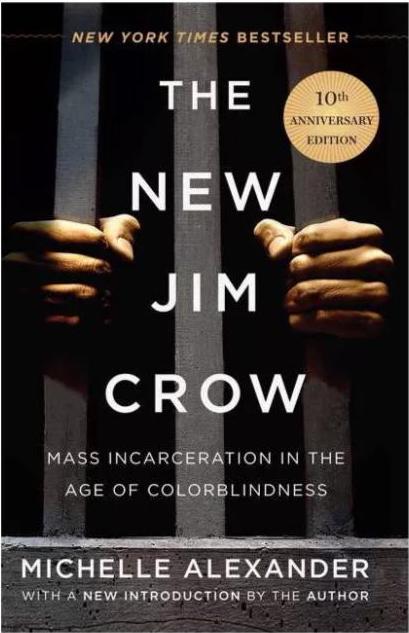
Alexander, Michelle. 2010. The New Jim Crow: Mass Incarceration in the Age of Colorblindness. Although Jim Crow laws have been wiped off the books, an astounding percentage of the African American community remains trapped in a subordinate status, much like their grandparents before them, who lived under an explicit system of control.
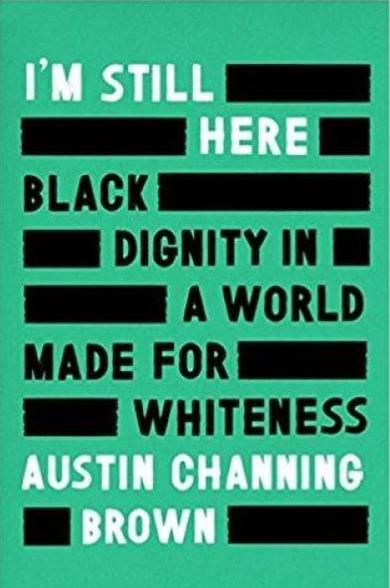
Brown, Austin Channing. 2018. I’m Still Here: Black Dignity in a World Made for Whiteness.I’m Still Here is an illuminating look at how white, middle-class, Evangelicalism has participated in an era of rising racial hostility, inviting the reader to confront apathy, recognize God’s ongoing work in the world, and discover how blackness–if we let it–can save us all.
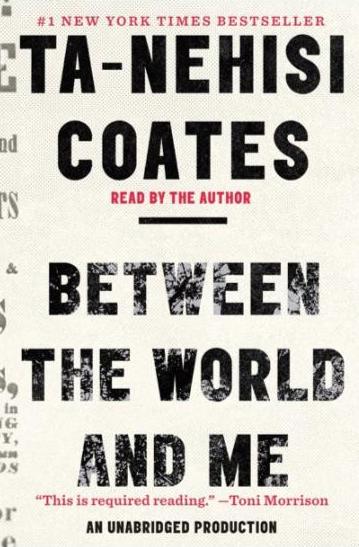
Coates, Ta-Nehisi. 2015. Between the World and Me. Written as a letter to his son, Coates confronts the notion of race in America and how it has shaped American history, many times at the cost of black bodies and lives. Thoughtfully exploring personal and historical events, from his time at Howard University to the Civil War, the author poignantly asks and attempts to answer difficult questions that plague modern society.
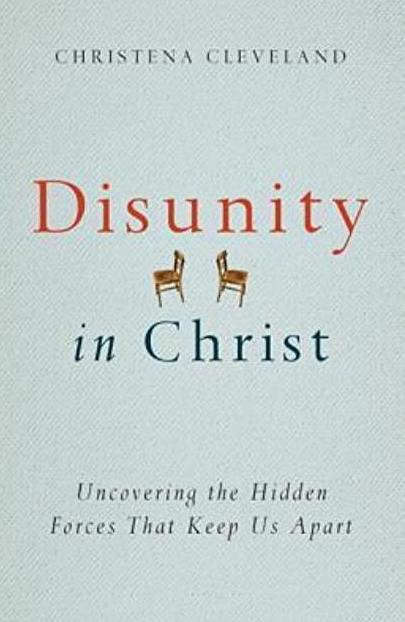
Cleveland, Christena. 2013. Disunity in Christ: Uncovering the Hidden Forces That Keep Us Apart. With a personal touch and the trained eye of a social psychologist, Cleveland brings to bear the latest studies and research on the unseen dynamics at work that tend to separate us from others.
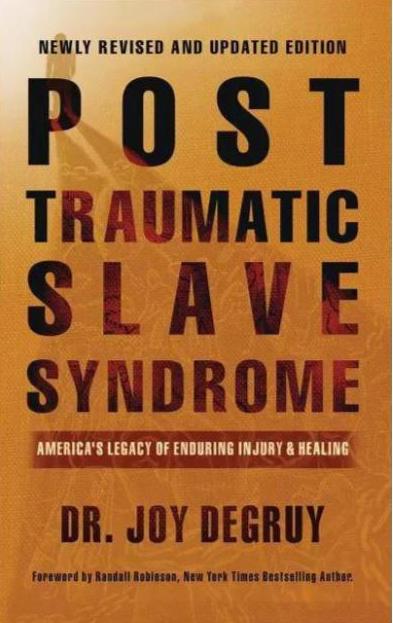
DeGruy, Joy. 2005. Post Traumatic Slave Syndrome: America’s Legacy of Enduring Injury and Healing. Understanding the lingering psychological and social impact of enslavement on Africans and Europeans, and the relationship between racism and slavery.
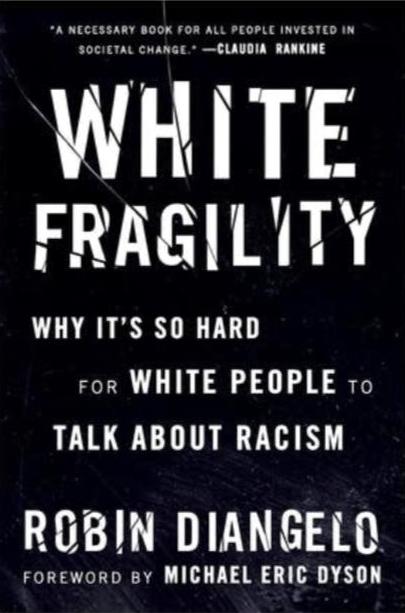
DiAngelo, Robin. 2018. White Fragility: Why It’s So Hard for White People to Talk About Racism. In this book, DiAngelo unpacks white fragility, explaining the underlying sociological phenomena. How does white fragility develop? What does it look like? How is it triggered? What can we do to move beyond white fragility and engage more constructively?
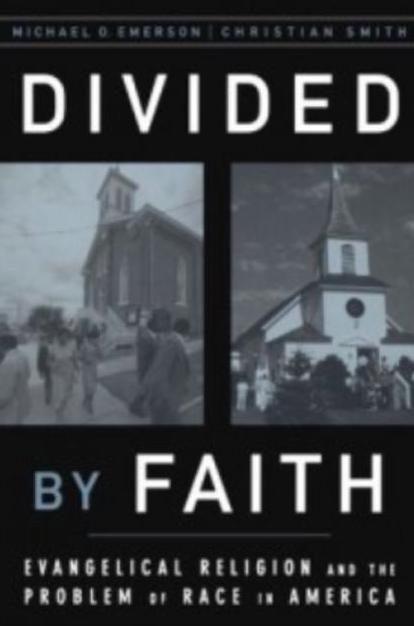
Emerson, Michael O., and Christian Smith. 2000. Divided by Faith: Evangelical Religion and the Problem of Race in America. “In Divided by Faith, Michael O. Emerson and Christian Smith probe the grassroots of white evangelical America, through a nationwide telephone survey of 2,000 people, along with 200 face-to-face interviews.
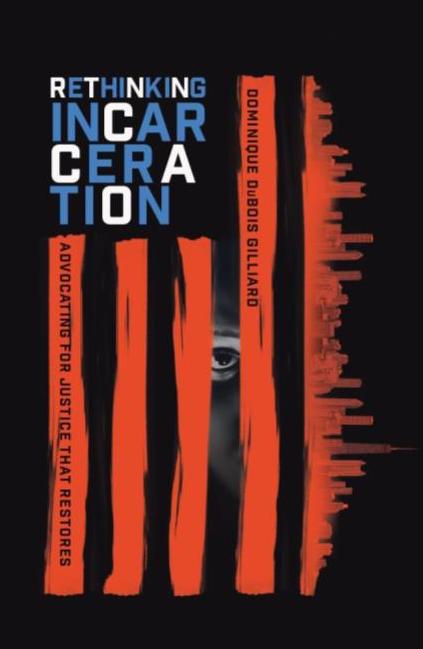
Gilliard, Dominique. 2018. Rethinking Incarceration: Advocating for Justice That Restores. Dominique Gilliard explores the history and foundation of mass incarceration, examining Christianity’s role in its evolution and expansion. He then shows how Christians can pursue justice that restores and reconciles, offering creative solutions and highlighting innovative interventions.
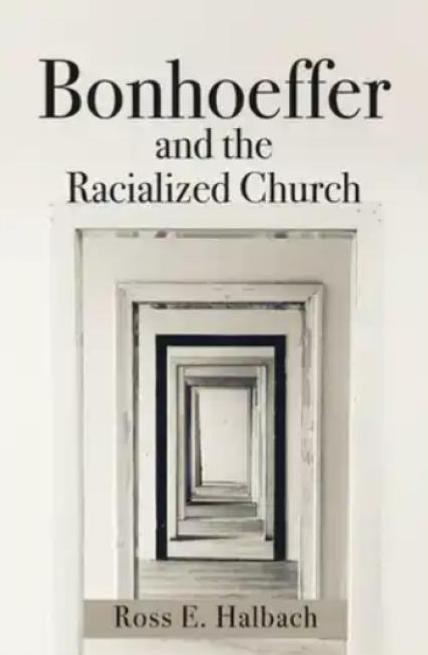
Halbach, Ross. 2020. Bonhoeffer and the Racialized Church. Bonhoeffer’s acute sense of God’s continual speaking offers a prophetic challenge to the church: instead of masking the realities of racial sin or pursuing easy resolution, we must confront the full consequences of whiteness in repentant expectation of Christ’s coming.
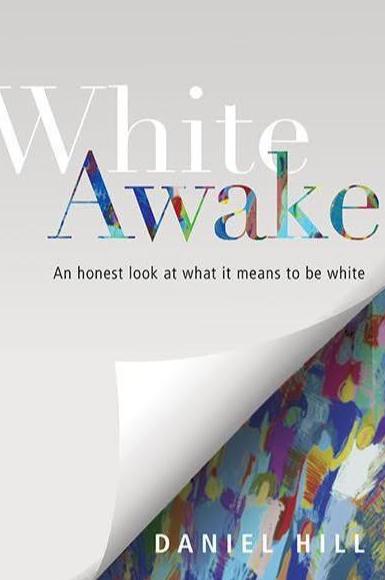
Hill, Daniel. 2017. White Awake: An Honest Look at What it Means to be White. At a time when conversations about race seem increasingly cross-pressured by various interests and motivations, readers can trust Daniel Hill to tell them the truth about racism and white supremacy.
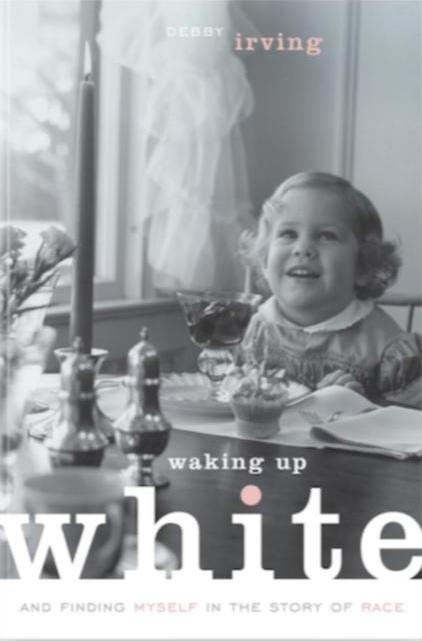
Irving, Debby. 2014. Waking Up White: and Finding Myself in the Story of Race. Waking Up White is the book Irving wishes someone had handed her decades ago. By sharing her sometimes cringe-worthy struggle to understand racism and racial tensions, she offers a fresh perspective on bias, stereotypes, manners, and tolerance.
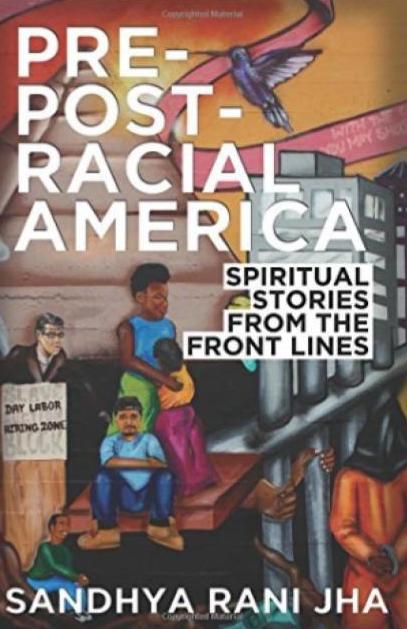
Jha, Sandhya Rani. 2015. Pre-Post-Racial America: Spiritual Stories from the Front Lines. Sandhya Rani Jha is a wise thinker who understands that race is best comprehended by those who are brave enough to listen to multiple perspectives. And she invites readers to lend an ear to a diverse collection of wonderfully rich and pointed stories that illuminate the various complex issues from immigration to black stereotypes in our far-from-post-racial society.
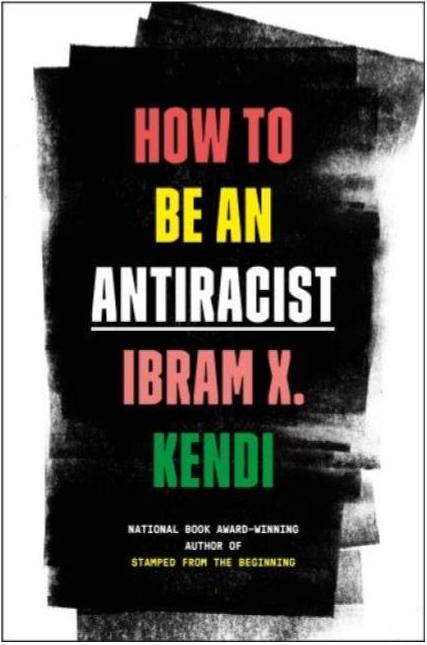
Kendi, Ibram X. 2019. How to Be an Antiracist. The founding director of the Antiracism Research and Policy Center, Kendi shows that when it comes to racism, neutrality is not an option: until we become part of the solution, we can only be part of the problem.
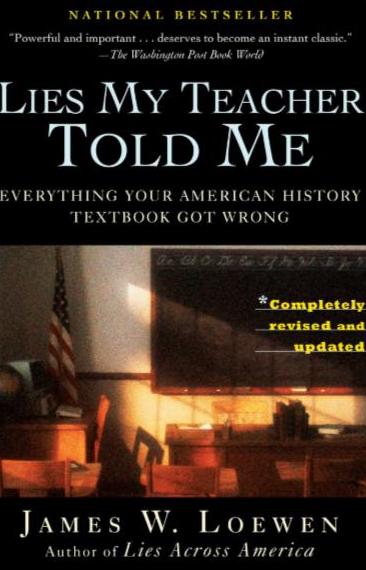
Loewen, James. 1995, 2008. Lies My Teacher Told: Everything Your American History Textbook Got Wrong. After surveying 12 leading high school American history texts, Professor Loewen reveals and attempts to correct in this 10-chapter book “blind patriotism, mindless optimism, sheer misinformation, and outright lies.”
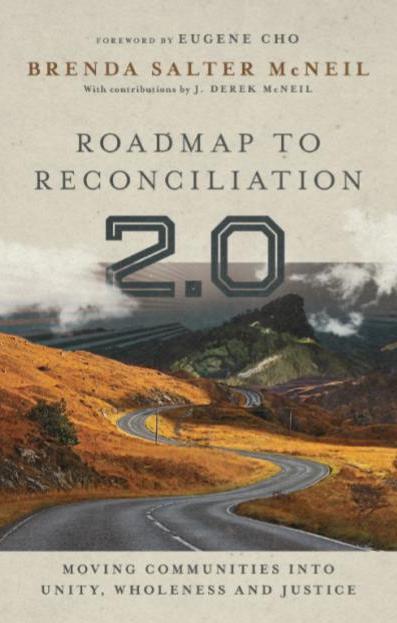
McNeil, Brenda Salter. 2015, 2020. Roadmap to Reconciliation 2.0: Moving Communities into Unity, Wholeness and Justice.Based on her extensive consulting experience with churches, colleges and organizations, Rev. Dr. Brenda Salter McNeil guides [the reader] through the common topics of discussion and past the bumpy social terrain and political boundaries that arise in attempts to reconcile.
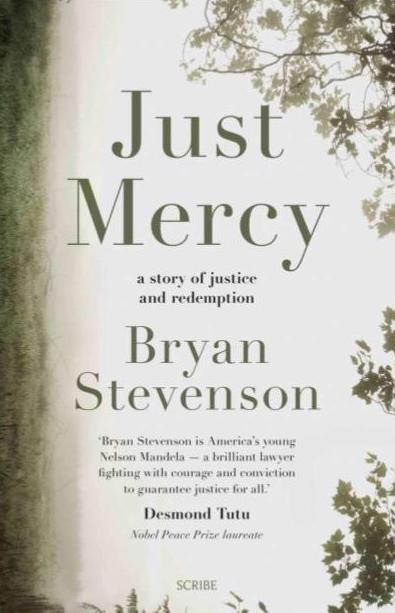
Stevenson, Bryan. 2015. Just Mercy: A Story of Justice and Redemption. Just Mercy demonstrates the extent to which brutality, unfairness, and racial bias continue to infect criminal law in the United States, but also recounts instances of human compassion, understanding, mercy, and justice that offer hope.
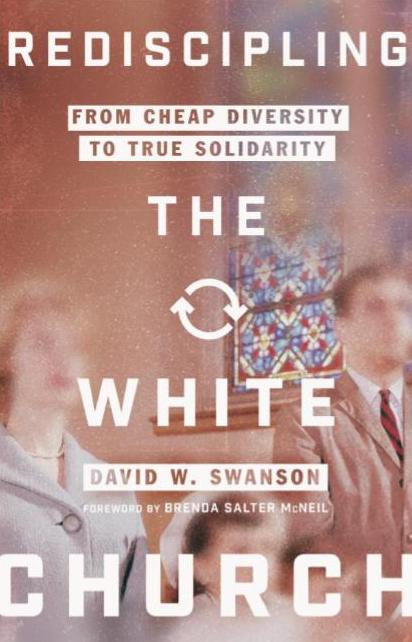
Swanson, David W. 2020. Rediscipling the White Church: From Cheap Diversity to True Solidarity. Before white churches can pursue diversity, we must first address the faulty discipleship that has led to our segregation in the first place. Pastor David Swanson proposes that we rethink our churches’ habits, or liturgies, and imagine together holistic, communal discipleship practices that can reform us as members of Christ’s diverse body.
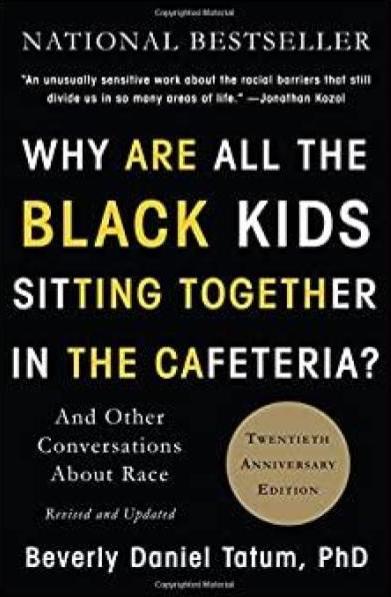
Tatum, Beverly. 1997, 2017 Why Are All the Black Kids Sitting Together in the Cafeteria? And Other Conversations about Race. Race identity is a positive developmental factor for young people of color. Beverly Daniel Tatum, Ph.D. asserts it is alright, even necessary, for black adolescents to have a strong sense of belonging, even if it requires a period of segregation.
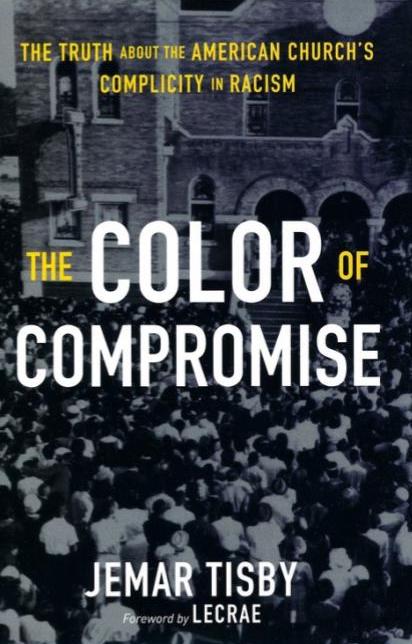
Tisby, Jemar. 2019. The Color of Compromise: The Truth about the American Church’s Complicity in Racism. The Color of Compromise provides an accurate diagnosis for a racially divided American church and suggests creative ways to foster a more equitable and inclusive environment among God’s people.
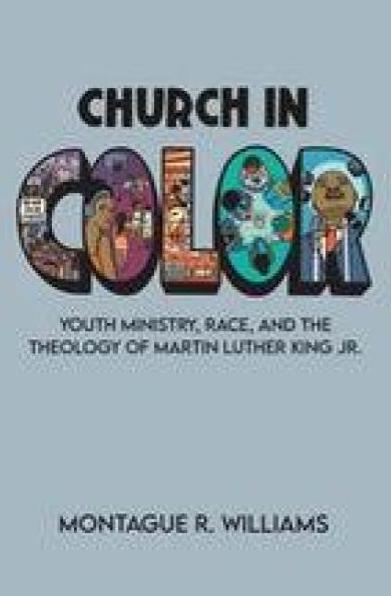
Williams, Montague R. 2020. Church in Color: Youth Ministry, Race, and the Theology of Martin Luther King, Jr. Montague Williams reminds us that the Church has much to lose if it fails to create the ‘space’ in which young people can reconcile their Christian discipleship with a serious engagement with the realities of ‘race, racism, and racial identity.’
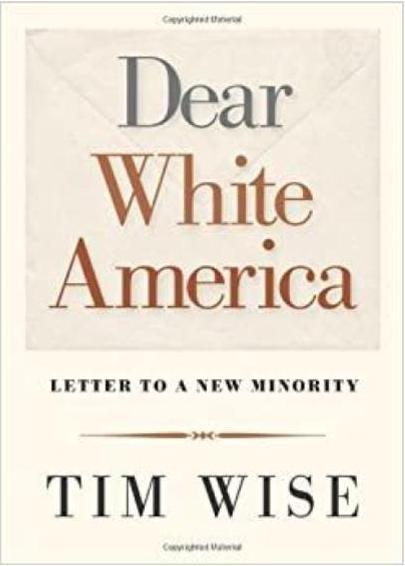
Wise, Tim. 2012. Dear White America: Letters to a New Minority. Wise points a finger at whites’ race-based self-delusion, explaining how such an agenda will only do harm to the nation’s people, including most whites. In no uncertain terms, he argues that the hope for survival of American democracy lies in the embrace of our multicultural past, present and future.
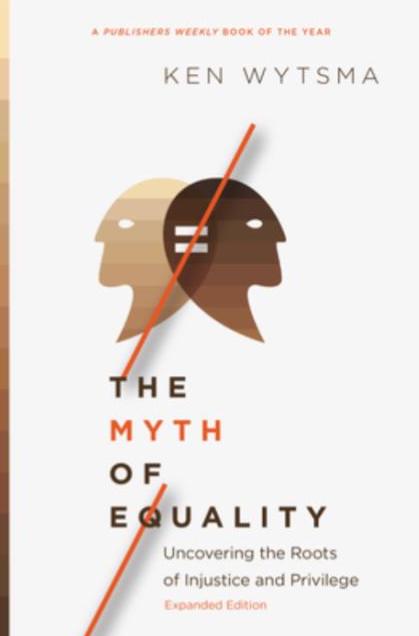
Wytsma, Ken. 2017. The Myth of Equality: Uncovering the Roots of Injustice and Privilege. Wytsma demonstrates the subtle and unsubtle ways that white dominance shapes American culture and conversations about race. He does so from the perspective of a passionately committed evangelical Christian calling prophetically for justice for those who have been consistently disadvantaged by a system and culture built on what “a white normative standard” that shapes perceptions and judgments.
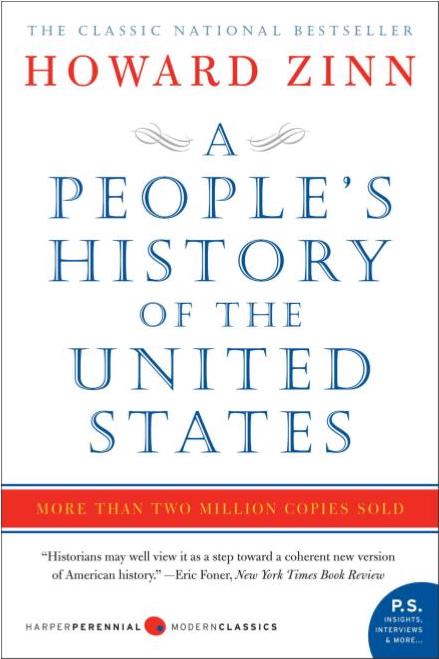
Zinn, Howard. 2003. A People’s History of the United States: 1492-2001. Known for its lively, clear prose as well as its scholarly research. A People’s History of the United States is the only volume to tell America’s story from the point of view of — and in the words of — America’s women. factory workers. African Americans. Native Americans, working poor, and immigrant laborers.
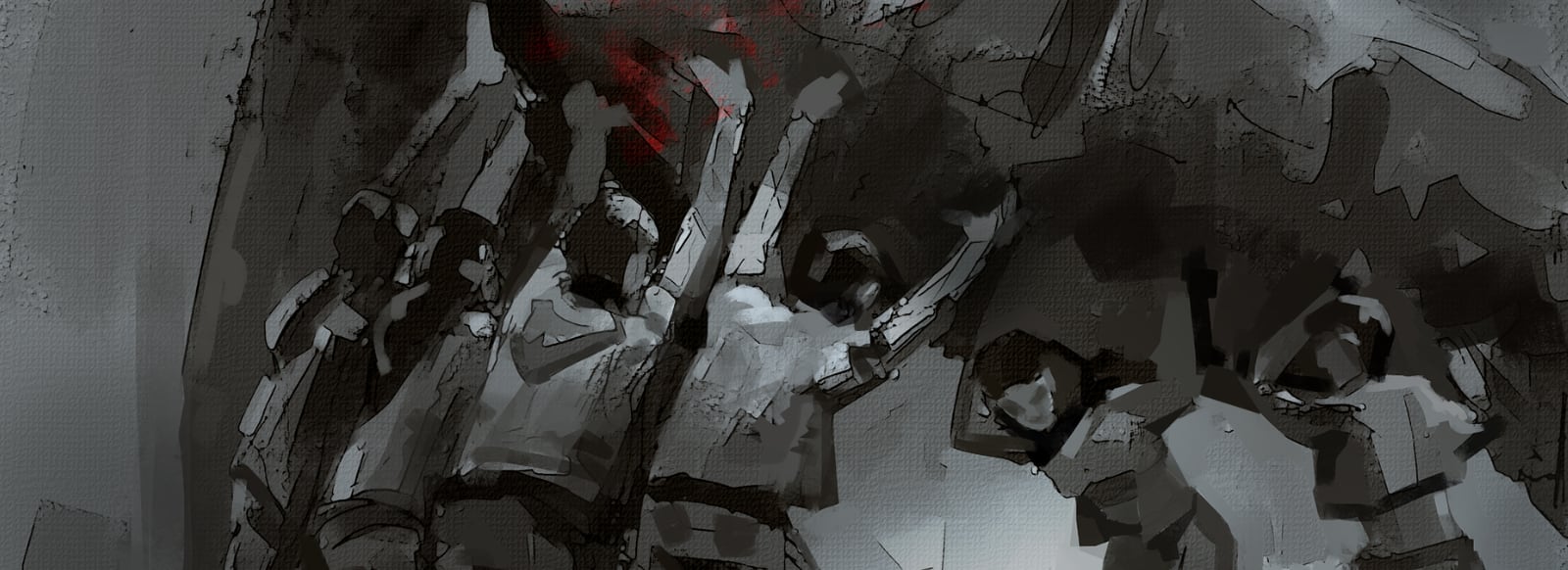
Thank you for allowing yourself to be a vessel to promote thoughtful change. I can imagine how draining it must have been to write & speak these words after hours and hours of processing. Thank you for your willingness and for your heart. You’ve spoken eloquently, truthfully and powerfully. I am tearful, but like you want to walk away from this as a vessel for change by the breath of our Spirit.
This has been hard, no doubt, but I am increasingly aware of how small my discomfort is on the scale that has been experienced in an ongoing way by our siblings who are not white. So, let’s get at it. We are responsible for this change.
I am grateful for your courage to speak out in love for all God’s people. I appreciate your honesty and humility. As I read your sermon, I felt several twinges of discomfort, and wanted to stop reading but I continued because I needed a truthful perspective on racism. Thank you for bravely and beautifully bearing your soul, Pastor Marc. God spoke to my heart through your message. I love to breathe and I want all people, everywhere to be able to freely breathe. We are all God’s wondrous creatures! He has made us! As far as it is up to me there will be justice for all. Much respect and thanks to you, Pastor Marc Alan Schelke!
Thanks for taking the time to read and then share your response, Donna. I’m so grateful that you pushed past those Uncomfortable moments. I believe all growth and spiritual maturity happens on the other side of discomfort. Our classic Christian understanding of repentance includes the need for confession. That’s simply acknowledging, “Yep. That’s me. I did that, or I thought that way, or I was clueless about this.” That’s not fun, and it’s never comfortable. But healing, growth, and learning are all available once we are willing to do it. Blessings.